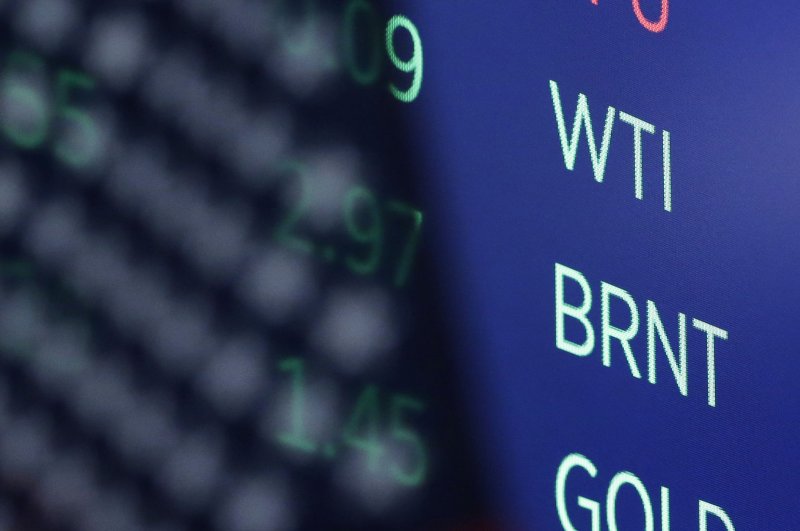Crude oil future prices continued to decline on Friday morning on concern of the market being oversupplied, as the impact of waivers announced Monday for several big buyers still lingered. File Photo by John Angelillo/UPI |
License Photo
Nov. 9 (UPI) -- Crude oil prices were lower Friday morning amid widespread concern that the market may be oversupplied, with yet another session where the impact of waivers announced Monday lingered.
As of 10:18 a.m. EST, WTI front-month crude prices traded at $59.71 per barrel, or a 1.6 percent decline, while Brent front-month crude oil futures traded at $69.63 per barrel, or down 1.4 percent.
"The rout continues for oil prices, which is on course for its longest losing streak on record (oil declining for 10 consecutive sessions) with WTI dropping below $60 and Brent cracking $70," DailyFX analyst Justin McQueen told UPI.
"Brent spreads have moved deeper into contango territory as investors fear a potentially over-supplied market. Much of this had stemmed from the Trump administration announcing oil waivers for 8 countries, which would allow for continued buying of Iranian crude," he added.
The United States on Monday announced waivers for several nations -- including big consumers China, India and South Korea -- so that they could continue to temporarily buy Iranian crude oil.
The nuclear program-related sanctions aimed at preventing Iran, a country that in April was producing 2.8 million barrels per day, to continue its exports. The sanctions were announced in May, leading to peak prices in early October as the market was contemplating the impact about the potential diminished supplies.
However, the Monday announcement, on the same day when the sanctions went into effect, threw the market off balance as any supply reduction concerns shifted into fear of oversupply.
"This also came at a time where the U.S., Russia and Saudi Arabia had been boosting oil to record levels," McQueen added. Announcements of production increases by Saudi Arabia and other countries to cover anticipated disruptions had led to a crude oil future selloff during most of October.
There is expectation now that major producers from both OPEC and non-OPEC countries will announce production cuts as soon as this weekend during an Abu Dhabi meeting, he added.















